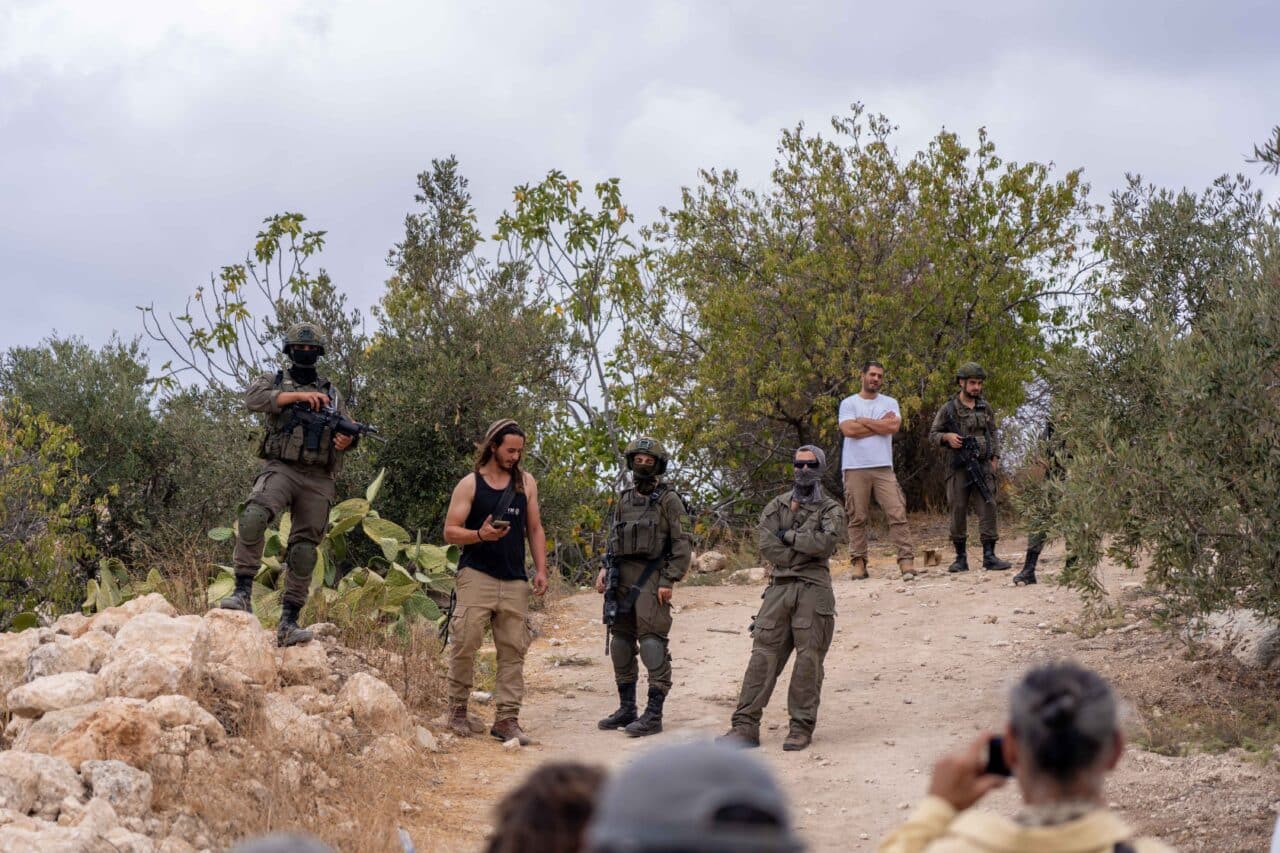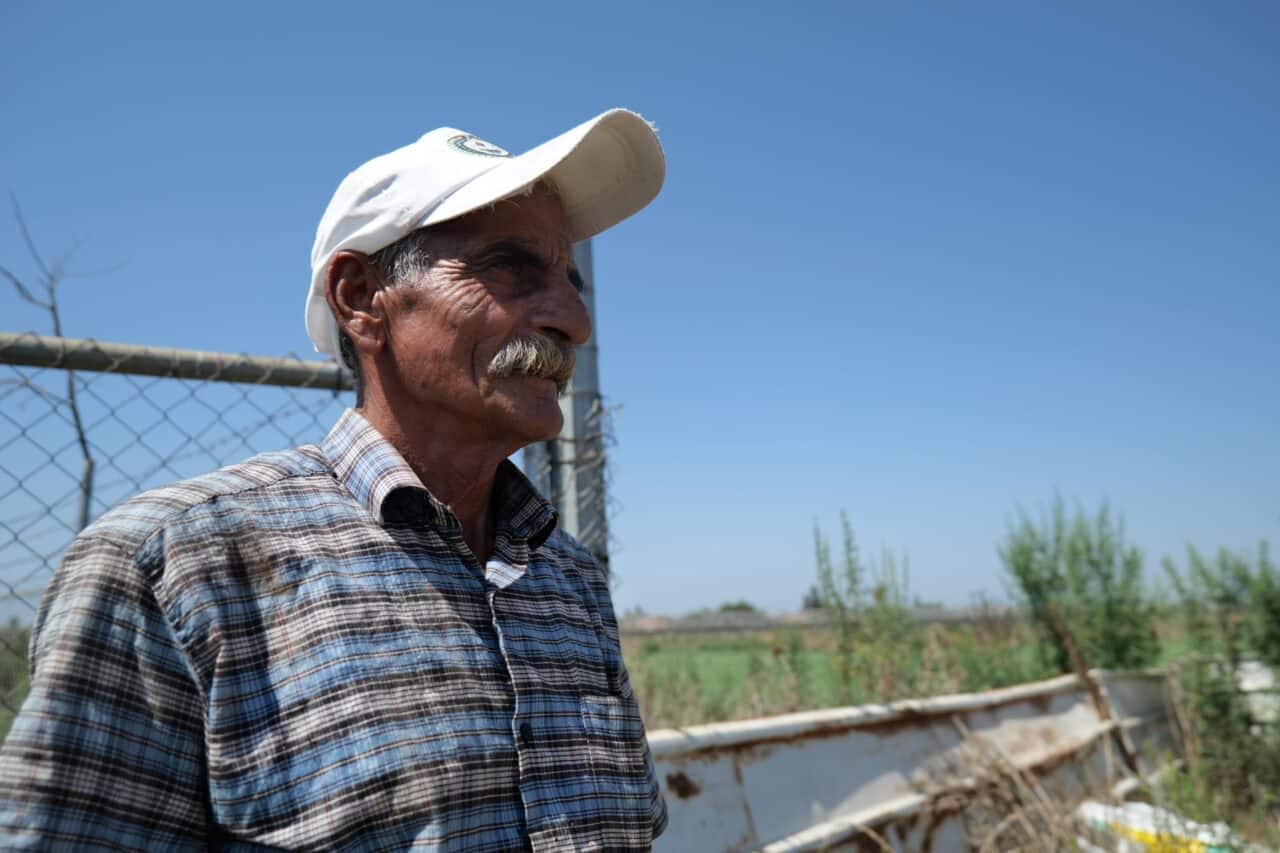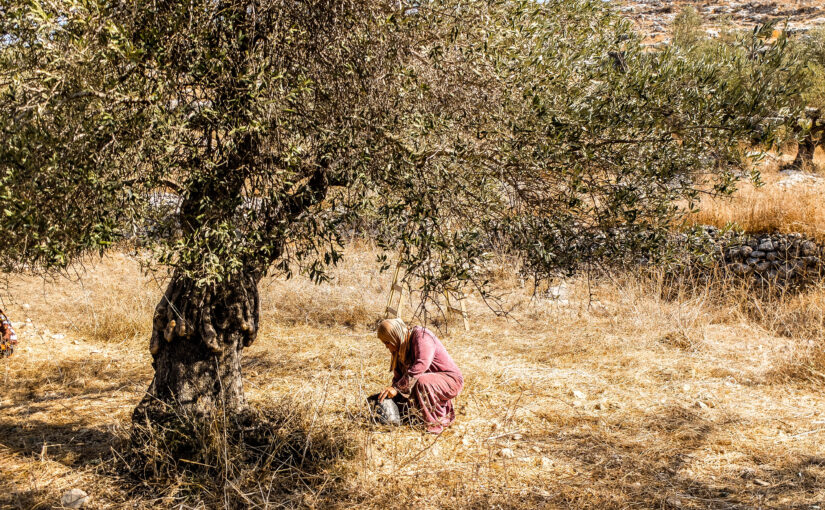Tag: Olive harvest
-
Olive Harvest updates: October 12
alMughayyer, East RamallahIsraeli citizens cut off some 150 olive trees in the Marj Sia area west of alMughayyer tonight. In recent weeks, the uprooting and cutting off olive trees has happened on a daily basis. Qaryout, South NablusIsraeli citizens set fire in the Batisha area north-west of the village Yanoun, East NablusIsraelis cut down olive…
-
Palestinian Farmers call for international support this olive harvest
by Diana Khwaelid Riziq Hamid, 65, is not the only Palestinian farmer whose land has been confiscated by Israel. About two weeks ago, Israeli bulldozers bulldozed and vandalized dozens of agricultural dunams in the Shuwaika plain area in Tulkarm, in the northern West Bank. Basim said Alyan is a farmer from the village of Deir…
-
Stories from the Palestinian olive harvest under occupation
Ahmad smiles, his eyes black, his wrinkles deep. He speaks his basic English as he lugs around plastic bags and water bottles: a breakfast that looks to me more like lunch. His olive grove is in front of a settlement; one of many Israeli settlements that are illegal under international law but have been colonizing…



